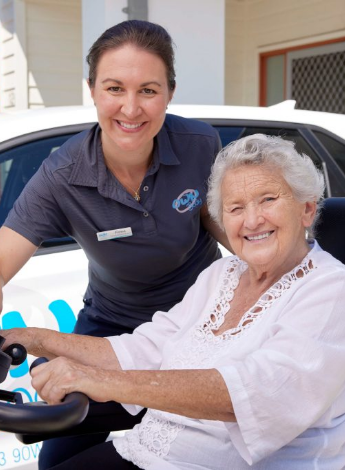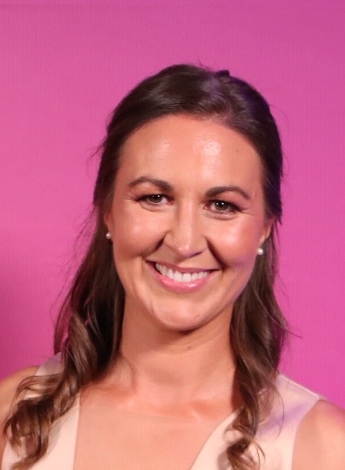
Leading on leave

Running a private practice while on extended leave can be a daunting prospect. By exploring strategies for a seamless transition, fostering a supportive work culture and embracing the transformative potential of such experiences, leaders and managers can prepare to successfully manage from afar.
In the dynamic landscape of modern private practice, the responsibilities of leadership and management are formidable, requiring dedication, commitment and strategic foresight.
In the midst of steering a private practice towards success, a significant juncture arises for many leaders and managers—the decision to take extended leave, particularly for life-altering events.
Such absences can pose substantial challenges, both for the individual stepping away and for the business they physically leave behind.
Navigating the complexities of leading on leave demands a careful balance between ensuring continuity in operations, maintaining team morale and fostering personal wellbeing.
Practice leaders and managers may find themselves grappling with a multitude of concerns, from delegating responsibilities effectively to mitigating potential disruptions to client care.
The absence of key figures at the helm can also create vacuums of leadership, prompting questions about succession planning and organisational resilience.
However, when leaders and managers navigate this critical phase with grace and efficacy, they can ensure the sustained success of both their own careers and their practice and can even benefit from the experience.
It’s all in the planning
Effective planning is essential to ensuring the stability of your practice’s operations during the absence of key leaders and managers.
Thoughtful and thorough planning helps mitigate potential disruptions and instils confidence in team members and stakeholders, along with a sense of reassurance and security.

Fiona White with a client at Own Body.
By proactively identifying critical tasks, delegating responsibilities and establishing clear lines of communication and accountability, leaders can empower their teams to navigate challenges autonomously and maintain momentum in their absence.
Strategic planning also facilitates a smooth transition back into the role upon return, minimising the impact of reintegration and enabling a seamless resumption of leadership responsibilities.
In addition to safeguarding a practice’s performance during their leader’s absence, investing in comprehensive planning sets the foundation for long-term success and resilience.
Delegate, delegate, delegate
Learning to delegate effectively ahead of taking extended leave as a leader or manager is not just a skill but a strategic imperative.
You cannot be present to oversee every detail—delegation is essential for maintaining productivity and encouraging team autonomy.
Delegation involves assigning tasks and empowering team members with the authority and resources needed to execute them successfully.
A culture of trust and accountability within the team allows leaders to delegate tasks confidently, knowing that they will be handled competently in their absence.
Moreover, delegating ahead of leave allows leaders to identify and develop potential successors, ensuring continuity in leadership and organisational resilience.
Embracing delegation as a proactive strategy not only eases the transition for both the departing leader and the team, but also cultivates a more empowered and capable workforce overall.
Hands off the reins
Resist the urge to make regular contact with the team when you are a manager or leader on extended leave.
While it’s natural to feel a sense of responsibility and curiosity about ongoing developments at the practice, excessive contact can undermine the authority of those stepping in to fill your role temporarily and may inadvertently create a reliance on your input.
Consciously stepping back and refraining from constant communication allows your team members to demonstrate their capabilities, make decisions independently and develop problem-solving skills.
This period of autonomy will boost their confidence and strengthen the resilience of the team as a whole.
Additionally, limiting contact means that you can truly disconnect and recharge, returning to work refreshed and ready to lead effectively.
Trusting in the abilities of your team and embracing the concept of leading from a distance benefits your personal wellbeing as well as cultivating a more self-sufficient and empowered workforce.
Fiona’s story
When the director and founder of Own Body Mobile Health Services, Fiona White APAM, injured her right knee and was unable to drive to treat patients, she turned adversity into opportunity.
Although Fiona had been gradually shifting her focus towards growing her business and was only working clinically in the event of team member illness or shortfall, the knee injury brought about a sudden halt to her clinical work.
The convalescence was a turning point for Fiona and her business; it was time to adapt and to learn to lead her team while she was on leave.
Fiona started Own Body in 2010 as a sole practitioner and has built up the business, which now offers mobile physiotherapy, occupational therapy and podiatry services in the home setting across metropolitan Melbourne, regional Victoria (including Ballarat, Geelong and the Mornington Peninsula), Brisbane, the Gold Coast, Sydney, Launceston and Hobart.
Own Body employs more than 90 team members including a management team, administration team members and clinicians.
‘I’ve always had this drive to empower the team so that I can take the next step up and work on things that are more important
for the business,’ Fiona says.
‘It came to a head in 2016 when I did my knee and couldn’t be on the road. I had to think, “How do I make it work?”
'We learnt to find another way instead of relying on me as the backstop, even if it meant accepting that it was okay to cancel or decline clients due to sick leave or being at capacity.
'Being up-front and providing solutions worked best, saying “We can’t see you today but here’s how we can make it work”, and more often than not the clients understood.’
The recovery time from the knee injury gave Fiona the opportunity to build up her business in preparation for continued success in her absence.

Fiona White.
Fiona hoped to start a family in the future and she needed to ensure that Own Body would survive— and thrive—while she was on maternity leave.
Now the mother of two has reflected on her experience of twice taking maternity leave and she has some advice for those about to be in a similar position.
‘Whether you want to take leave, move up further in your career or spend more time on the bigger picture, the process is the same.
'It comes down to people—having the right people in the right seats, making sure they’re people you trust and investing in building that trust bilaterally.
'That involves everyone, from the admin team to your senior management and clinicians.
'You have to have that bilateral trust with them so you know you can take leave and feel comfortable leaving them in charge of the business,’ Fiona says.
‘Investing in the right team is the number one ticket to making this work.
'I struggled with letting go of a lot of these processes, even at the very start when handing over my clinical work, because it makes me really, really happy.
'However, I can have more of an impact and influence more people by doing what I’m doing now—enabling the clinicians to have the freedom to do what they need to do and enabling the senior team to fulfil their management roles without micromanaging them.’
Fiona, who is also the chair of the APA Business group in Victoria and chair of the Victoria Compensables working party, says her philosophy when it comes to recruitment is to ‘hire great people, treat them well, pay them well and enable them to do what they do best’.
She invested heavily in a supportive administration team as well as a streamlined system of processes and procedures, adapting and modifying them as needs arise.
This has helped to create support for the Own Body team and serves as a vital resource in the day-to-day running of the business.
‘We have systemised absolutely everything, from our recruitment process to our policies, processes, administration, onboarding and more.
'We are constantly reviewing and updating the systems and procedures and adding in new things.
'When something goes wrong, we can go back and say “Was the system followed, yes or no?” If it was followed, okay, maybe the system needs updating or the process needs updating,’ Fiona says.
‘If something is not documented, that’s a good reminder to get it documented and get that process sorted.’
Having won the Victorian Small Business category of the 2019 Telstra Business Women’s Awards, Fiona says creating the right environment to be able to take a step back from the operational side of the business involves work to define and clearly communicate the roles, responsibilities and expectations of everyone on the team, build a solid framework of support, empower team members to be able to make decisions and ensure there are clear lines of management and accountability.
‘When you give people that trust, that permission and that experience of owning their roles, they feel more personally tied to the outcome,’ Fiona says.
‘I always tell new clinicians that the best thing you can do for us is to tell me what we’re doing wrong— or what we could be doing better—and that feedback is always welcomed and appreciated because it means that you care.’
© Copyright 2025 by Australian Physiotherapy Association. All rights reserved.





